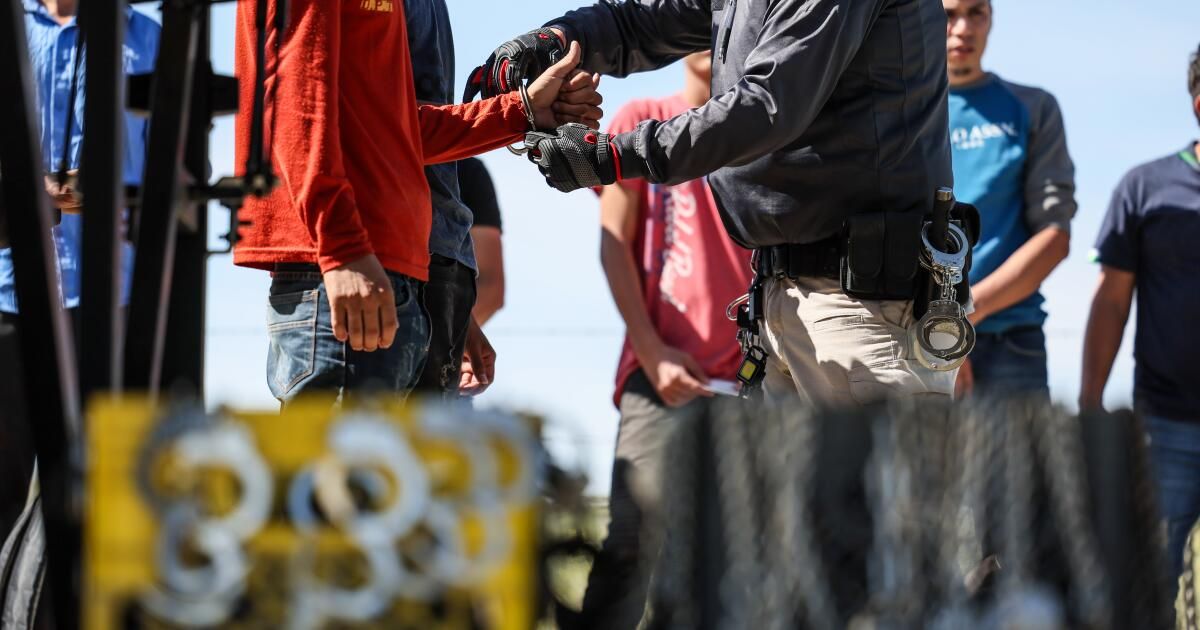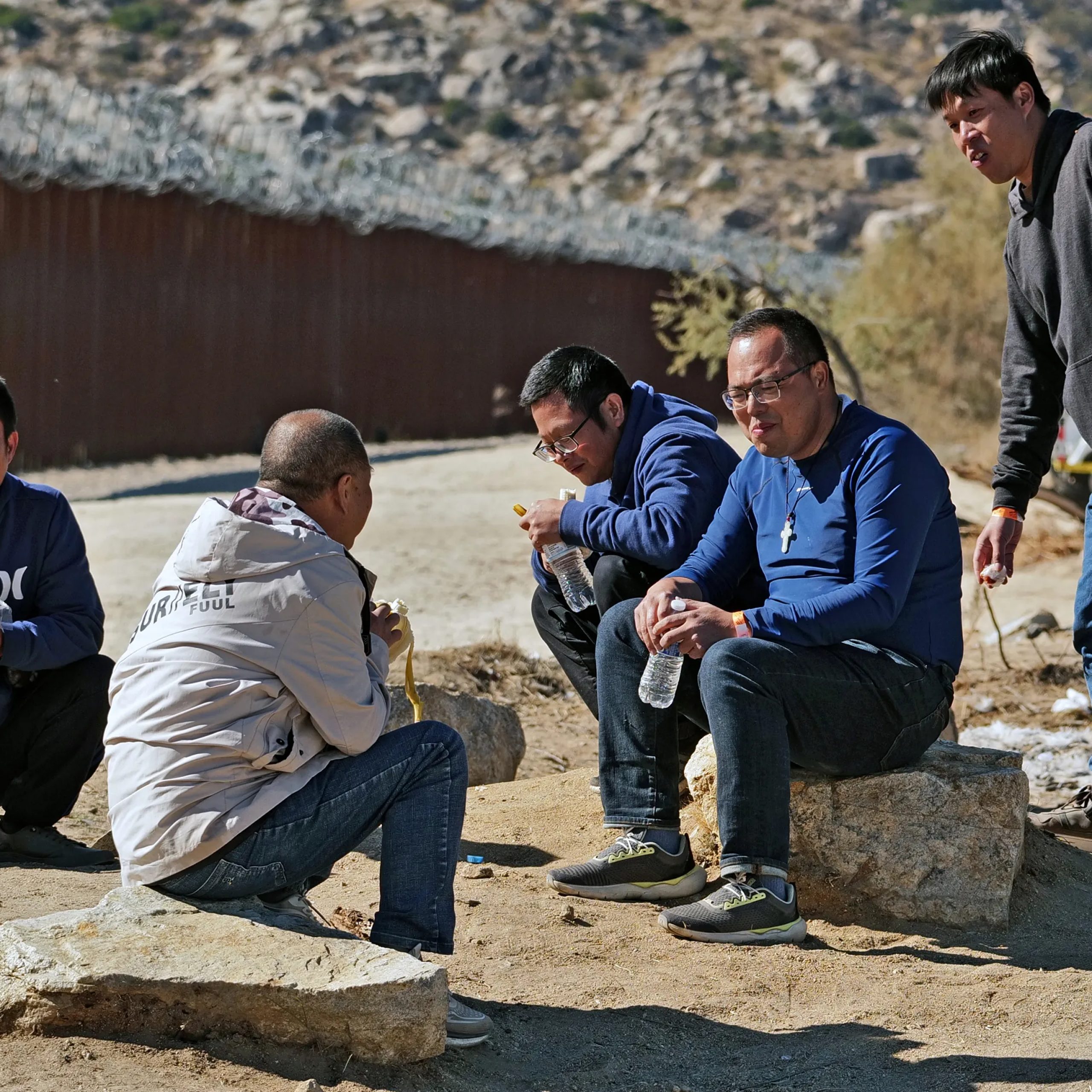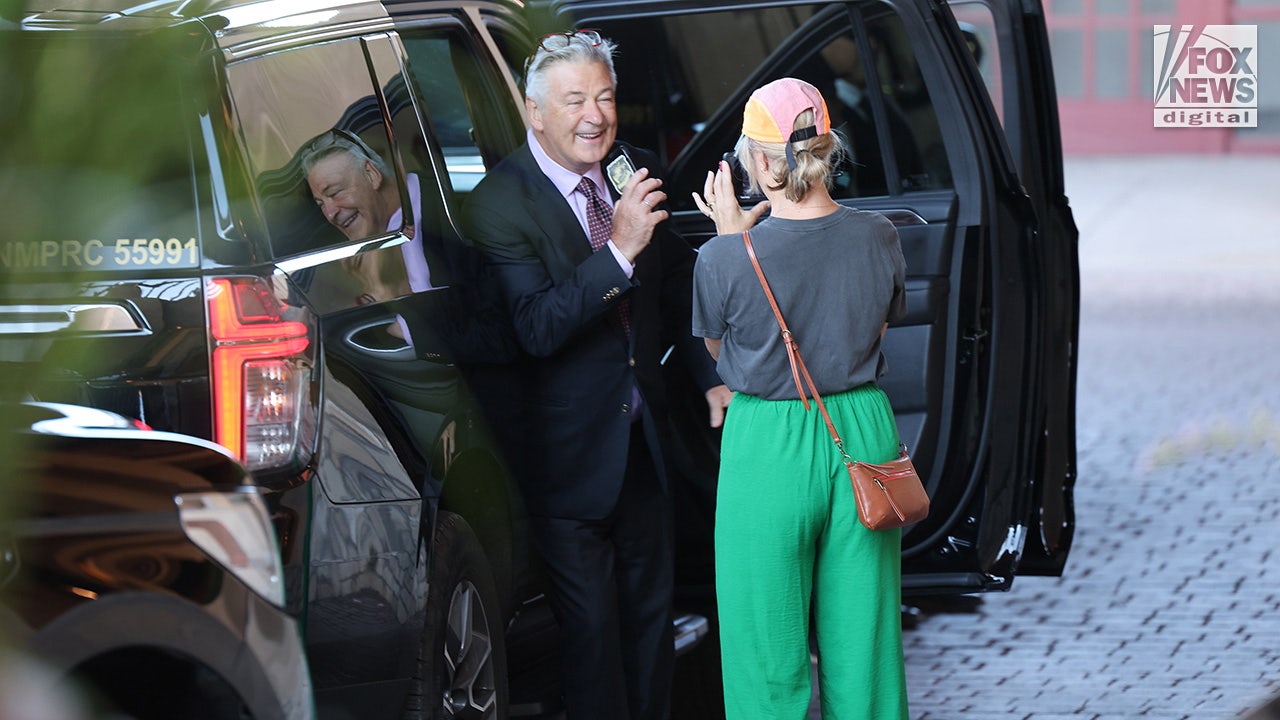President Biden is expected to sign an executive order Tuesday that will close the U.S. border with Mexico between official ports of entry while crossings are high, a change designed to make it harder for people who cross illegally to seek asylum.
Under a new interim rule, the president can put border restrictions into effect when the average border arrests exceed 2,500 immigrants for seven days in a row, as is the case today. The rule also raises the legal threshold for an asylum claim at the border from a reasonable possibility that they will face torture at home to a reasonable probability that this will happen.
The strengthened restrictions would end two weeks after the number of crossings stopped at the border fell below 1,500 for more than a week. Data shows that for most of the last nine years, border apprehensions have not fallen below 1,500 per day.
“These measures will significantly increase the speed and scope of consequences for those who cross illegally” and “will allow departments to more quickly expel individuals who do not establish a lawful basis for remaining in the United States,” one of several senior officials said. administration officials who briefed reporters on condition of anonymity.
The restrictions would not apply to those entering through official ports of entry or using other legal means, including those who use a relatively new mobile app to request an appointment. It would also exempt certain groups, including unaccompanied children, victims of severe forms of trafficking, and people with extreme medical emergencies or extreme threats to life and safety.
Administration officials defended their efforts to secure the border, saying they have already returned more migrants in the past 12 months than in any year since 2010. They also sought to blame Republicans for Congress' failure to pass a bill bipartisan that would have given the administration more money and authority to control the border.
Officials acknowledged that the president's executive action, which will likely face legal challenges, is essentially a stopgap.
“There is no lasting solution to the challenges we face without Congress doing its job,” one official said.
While Mexico has agreed to receive immigrants from several Latin American countries, the administration faces a surge in arrivals from other continents, including Asia. Officials said they were working to strengthen agreements to bring people to India, China and other countries of origin, but said it remains a challenge.
Officials have faced a barrage of critics from the right, who blame Biden for what they call an out-of-control border, and from the left, who accuse him of replicating xenophobic policies pushed by former President Trump. Officials took pains to differentiate their policies from Trump's better-known practices, including attempts to ban entry of people from Muslim-majority countries and separate children from their families.
“We will not separate children from their families,” an official said. “It is not only inhumane, but tremendously ineffective.”
California Sen. Alex Padilla, a Democrat who chairs the Senate Judiciary subcommittee on immigration, citizenship and border security, criticized Biden's border decision, saying it not only be ineffective but also “undermined American values and abandoned our nation's obligations to provide people fleeing persecution, violence, and authoritarianism the opportunity to seek refuge in the United States.”
Seeking asylum, regardless of how someone arrives on U.S. soil, is a right under the federal Immigration and Nationality Act and international law. That issue proved problematic for the Trump administration's efforts to limit border crossings and could also trip up Biden's latest order.
Biden relies on two provisions of immigration law to justify his executive actions, including section 212(f) of the Immigration and Nationality Act, which allows a president to suspend the entry of individuals or classes of immigrants if it is in their interest national. Trump also used that section to reinforce his travel bans. Although it was challenged, the Supreme Court ultimately upheld a revised version of the ban.
“People like the ACLU and other immigrant rights organizations will surely argue that in this case section 208 of the immigration statute explicitly allows someone to claim asylum whether they cross through a port of entry or enter illegally between a port of entry. . And so they're going to argue that Section 212(f) doesn't extend that far,” said Stephen Yale-Loehr, professor of the practice of immigration law at Cornell Law School. “That will be what a court will have to decide.”
A legal challenge would likely take months or years. The American Civil Liberties Union said in a statement Tuesday that it plans to challenge the executive order in court.
“It was illegal when Trump did it, and it's no less illegal now,” said Lee Gelernt, deputy director of the ACLU's Immigrant Rights Project.
Amy Fischer, director of Refugee and Migrant Rights at Amnesty International USA, said the long-awaited executive action “plays into false narratives about border invasions and promotes a policy based on white supremacist ideas at the expense of people seeking safety.” on the border.” US”
“President Biden's action sets a dangerous international precedent by imposing a numerical asylum limit, the first of its kind, which limits the number of people who can apply for asylum in the United States and effectively closes the border between the United States and Mexico, using the same legal authority. that the Trump administration used to implement the dangerous and xenophobic travel bans on Muslims and Africans,” Fischer said.
Immigration has been one of Biden's thorniest problems, from a practical and political point of view. He campaigned largely to reverse Trump's tougher policies and rhetoric, but after Biden took office, border crossings and arrests increased dramatically.
Chad Wolf, who was head of the Department of Homeland Security in the Trump administration, said during an appearance on Fox News on Tuesday that he doesn't believe the border plan will work and that it comes “too little, too late.”
“They have been telling the American people that there is no crisis along that border for three years, and they have tried to convince the American people that they cannot take executive action,” he said. “With five months until the election, they are now taking border security seriously. “I don’t think so and I don’t think the American people will buy it.”
Polls show that many voters consider immigration and the border a priority issue, often along with the economy, character, democracy and abortion. It's also the area where Trump is most likely to be rated ahead of Biden, according to an ABC News poll released last month showing that 47% of Americans trust Trump more on the issue, up from 30%. who trusts Biden more.












